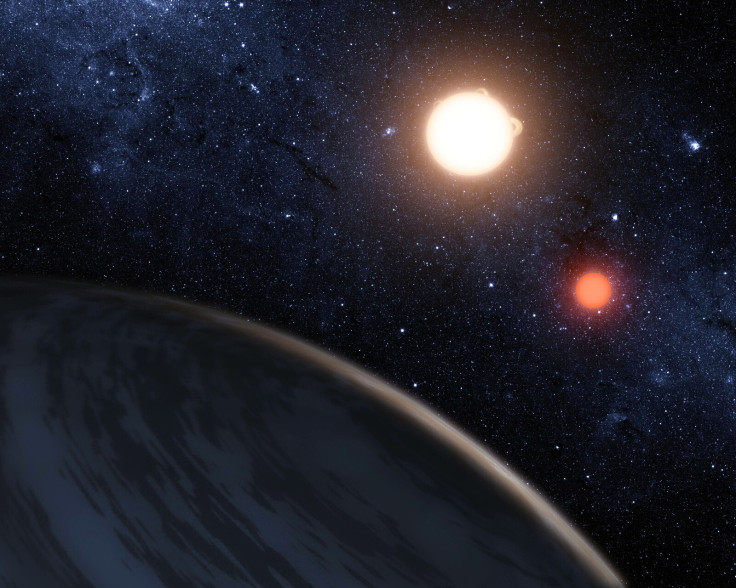K2-33b: Newborn Neptune-like world is youngest fully-formed exoplanet ever discovered
A fully-formed exoplanet just five to ten-million-years-old has been discovered; the youngest ever to be identified by astronomers. Known as K2-33b, it is one of just a handful of newborn planets to be found. Studying it will help scientists better understand how solar systems form, providing a "snapshot" of the process.
When stars form they are surrounded by gas and dust – known as a protoplanetary disk. It is this gas and dust from which planets form. After a few million years of the star forming, most of the disk has dissipated and the planets are largely formed. Observing planets at this stage of formation is extremely rare.
An international team of scientists used Nasa's Kepler to observe regular dips in the brightness of the young star K2-33 – indicating a planet was orbiting it.
Publishing their findings in the journal Nature, the researchers found the star still had a small amount of its protoplanetary disk material remaining, indicating the planets in the solar system were at the end stages of formation.
Trevor David, first author of the study, said: "Astronomers know that star formation has just completed in this region, called Upper Scorpius, because roughly a quarter of the stars still have bright protoplanetary disks.
"The remainder of stars in the region do not have such disks, so we reasoned that planet formation must be nearly complete for these stars, and that there would be a good chance of finding young exoplanets around them."

Their analysis indicates K2-33b is between five and 10-million-years-old, an extremely young age in planetary terms (Earth, for example, is 4.5-billion-years-old). It is estimated to be around 50% bigger than Neptune and sits very close to its host star – orbiting it every 5.4 days. The find provides evidence planets can exist close to their host star soon after the dissipation of the protoplanetary disk.
"It is extremely rare to find a planet at this stage of its infancy, and gives us a unique opportunity to try and understand more about how all planets form and develop, including Earth," said Sasha Hinkley, one of the study authors. "We would really like to know if this planet formed at its present location, or perhaps formed much farther from the star, and moved much closer in."
He said K2-33b provides a "snapshot of the planet formation process", adding the discovery provides scientists with the opportunity to better understand the life cycle of planetary systems. "In the same way that a person's development is more easily understood if you can study them from birth, through childhood and into adulthood, so our understanding of the planets will only increase by learning more about them during their early existence," said Hinkley.
© Copyright IBTimes 2025. All rights reserved.






















